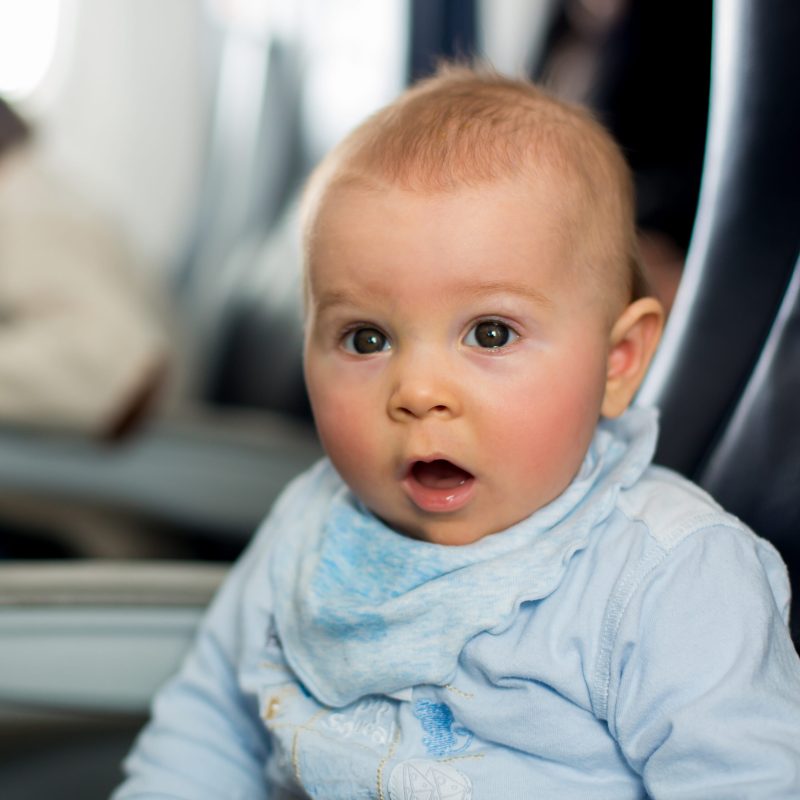
Traveling can be uncomfortable and frustrating for many reasons: no leg room, turbulence, barefoot passengers, people sneezing and coughing up a storm. The list goes on and on. Everyone has an in-flight pet peeve. For some people, babies on board are a real nuisance.
To accommodate passengers who don’t want to be near babies, Japan Airlines created a feature that shows you where small children are seated on your flight.
This new policy has sparked a great deal of controversy. Is this feature considerate of older passengers, or is it just plain disrespectful to families trying to get somewhere like everyone else? Read on to learn about the specifics of the child map, what Twitter users have to say, and what the airline offers families.
The Specifics Of The New Feature
The feature maps the seats of children under the age of 2. When you’re selecting your seat, a baby symbol labels seats saved for the littlest kiddos.
This new tool begs the question How effective can a baby symbol actually be? If a child is crying, will being ten seats away instead of one seat away make that much of a difference? Also, you might still get seated near a young child if their parents book after you do. So what then?
A lot of people feel very strongly about the new tool, whether they’re in favor of it or not. What we can say for sure is that there are two different sides to this story, and both of them have a point.
I used to feel and say exactly what you have just said – but after having my own son, I am very sympathetic to parents travelling with kids. If you're not happy with a screaming child in the cabin then I am more than happy to you to try and reason with them 😉
— Andrew Lim (@andrewlim85) September 26, 2019
The Great Debate
The announcement of Japan Airlines’s child map has been extremely polarizing on Twitter and other social media platforms.
Venture capitalist Rahat Ahmed sparked controversy with a tweet stating he loves the feature so much he thinks the child icon should be mandatory for all airlines. In his tweet, he lamented over a frustrating 13-hour flight with three “screaming” children.
In response, traveler, public speaker, and entrepreneur Andrew Lim said he once could relate to Ahmed’s claim, but after having a child of his own, his stance has changed.
One woman agreed with Ahmed. She said, “On your point, drunks aren’t tolerated. My mum did not travel on flights with me as a baby and waited until I was older as it was best for everyone.” Her view? “That is the sensible and considerate thing to do.”
Even though Ahmed’s commentary bothered many, traveling for 13 hours with constant noise must’ve been pretty exhausting. There’s validity to both sides of the argument.

What Else We Know
Even though the new policy has been labeled “anti-kiddo” by opposers, Japan Airlines does have several accommodations for families that are worth mentioning.
For instance, strollers can be checked for free. If you don’t want to bring a stroller but could still use one, you can actually borrow one of their strollers — at no cost — to get around the terminal. Though the offer is limited by availability, it’s still a nice gesture to make traveling run more smoothly for parents and families.
Families also get priority boarding. If you purchase it in advance, you can have a meal prepared for your child. Different types of food are available for children of different ages.
The airline’s child map is certainly controversial, but kids on flights aren’t the only point of contention. Another great debate: Is it totally fine or totally gross to be barefoot on a flight? One of our writers admits she’s gone barefoot on a plane, but ultimately, you decide!
